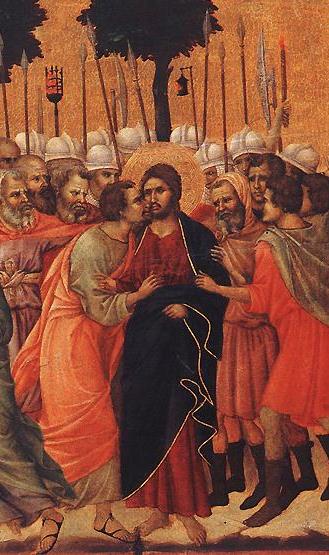Apostasy happens. Various schools of thought within the church have different explanations concerning the nature of apostasy, but the fact that it happens is undeniable. Judas, chosen by Jesus himself to be an apostle, is the paragon of apostasy. The ability to apostatize from the faith is assumed in Jesus’s exhortations in John 15 for the disciples to continue to abide in him. Jesus also alluded to apostasy in his parable of the soils when he spoke of those who receive the word of the kingdom with joy, endure for a while, but then fall away when tribulation and persecution come (Matt 13.20-21). The writer of Hebrews assumes the ability of apostasy when he exhorts the Jewish Christians not to do so throughout his letter. The possibility of apostasy also undergirds Paul’s exhortation to the Gentiles in Romans 11 not to be proud but fear, for if God did not spare the natural branches (i.e., the Jews), neither will he spare them.
Apostasy happens. Explain it however you will, but it happens. There are people who are a part of the people of God, people who may even be excited about their faith (as in Jesus’s parable), but as time passes they become the enemies of Christ. They forsake the faith and are the objects of God’s wrath.
The threat of apostasy is repulsive to some in the church. We believe in the “security of the believer.” Well, I do to … as long as it is understood biblically. Our salvation is secure in Christ alone and is received only by faith. As long as you are loyal to Christ, your salvation is secure. The security of your salvation doesn’t come through a magic “sinner’s prayer” or even baptism. Just because you wrote the date of your conversion down in the fly leaf of your Bible doesn’t mean that your salvation is secure no matter what. Salvation is by faith. Salvation is by faith in Christ that perseveres to the end. Persevering faith is the only faith that saves. Anything less is, by definition, not saving faith.
There are many mysteries about apostasy that we may never understand, but we are given warnings and exhortations concerning apostasy that we must heed. We are instructed all through the Scriptures in how to avoid apostasy: continue in the faith; continue to be loyal to Jesus.
Apostasy doesn’t sneak up on you and grab you in your sleep one night. Apostasy is generally a process. It is like leaven that slowly grows, eventually affecting the whole lump of dough. When we see this sinful leaven in our lives, we must take all necessary measures to cut out the old leaven. This is why we must be careful on a daily basis to maintain the disciplines of the faith, cultivating the gifts God has given us. We must not neglect consistent worship and fellowship with the saints from whom we receive encouragement (Heb 3.13; 10.24-25). Confession of sin and pursuing what is good and lovely are disciplines that keep the old leaven at bay.
Few who apostatize intend to do so from the beginning. It happens slowly with a little neglect of prayer over here because I am too busy. “What does it hurt to take a little time with the family and stay away from worship every once-in-a-while?” The thorns of persecution really do not affect us too much in this country. The thorns take a different shape: leisure, fun, and distractions. Fellowshipping with the church as central to my and my family’s life may be important on a list of priorities, but it is not central. When the church is not central, then the things that are more fun to us easily take us away from our lifeline of strength and slowly choke out the faith. We never intend it to happen, but it does; slowly, methodically eating away at our lives until one day we don’t care anymore. We don’t see any use in all of this “religion stuff.”
Guard your hearts. Continue to walk in the faith, maintaining the disciplines of the faith. As you do these things, you will never fall.















